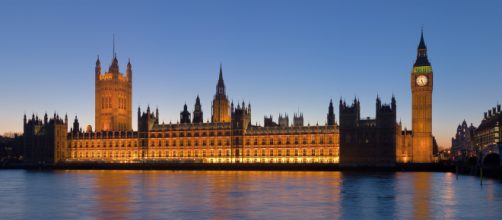Twelve pro-EU Conservative MPs attempted to attach an amendment onto the government’s trade bill last night which would have forced the government to join a customs union if it did not manage to secure a free-trade deal with the EU. In response to this, the government says joining a customs union would mean the UK would still have to apply external tariffs to other trading partners and so would stop the UK striking new trade deals around the world after Brexit.
The government won the vote by 307 to 301 votes, but this could have been a very different story.
With twelve of their own backbench MPs rebelling, they had to rely upon four Brexiteer Labour MPs voting with them to ensure the amendment failed. If these four Labour MPs had voted against the government, they would have lost the vote, making a vote of no confidence likely.
Key Commons vote: What was being debated?
The Commons had been debating two Brexit bills; one on trade and the other on customs. Both bits of legislation had been subject to many proposed amendments as both pro-EU and pro-Brexit MPs tried to create the version of the bill they wanted, according to the BBC. The key vote, discussed above, was on the customs union and the amendment was brought forward by pro-remain MP Stephen Hammond.
Although the government succeeded in rejecting the amendment, Tory Brexiteer Andrew Bridgen said that if the PM had lost the vote it “would have triggered a confidence motion in the government immediately”, according to Sky News. Thus, the fact that twelve of Mrs May’s colleagues were willing to vote against her, even with the possibility of bringing down the government, shows the frail grip she has on her party.
It should also be noted that just before the government won this crucial vote, they actually lost the vote on the previous amendment, only the second government defeat over Brexit in the Commons. MPs voted 305 to 301 against the government in order to try and keep the UK in the European Medicines Agency after it leaves the EU, for fear of delays in patients receiving the correct medication, according to the BBC.
Government wins Commons vote, but some accuse them of bending the rules
The Liberal Democrat Deputy Leader, Jo Swinson, has recently had a baby and, therefore, is off on maternity leave. In the House of Commons, there is no procedure for someone to vote in Ms Swinson’s place and so what is usually done is something called ‘pairing’. This is an agreement with a member of an opposite party that, as she cannot attend the vote, they too will not vote so as to cancel each other out.
In yesterday’s Commons’ votes, Jo Swinson’s ‘pair’ was Conservative party Chairman Brandon Lewis. For the majority of the day’s votes, he sat out as per the pairing agreement, but when it came to the two crucial votes in the evening, like the customs union amendment discussed above, he voted in both.
This has led to widespread criticism of him and the party, accusing them of going back on their word and showing disrespect for Commons procedure and new mums. Since the vote, both Mr Lewis and the Whips office, who organise the pairings, have apologised and said it was an administrative mix-up, but this argument has not convinced most people.
So, as Theresa May heads towards the summer recess in Parliament and with this the last crucial vote of the session, she finds herself still Prime minister and still continuing with her vision for Brexit, for the most part. Therefore, although we do constantly hear how she has no power and that she is hanging on by a thread, it seems the thread by which she is hanging is longer than we all thought.




